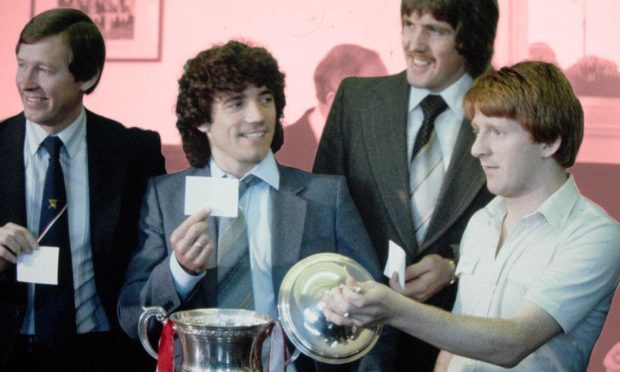One of Private Eye’s most long-running features, Colemanballs, derided sports pundits and presenters who uttered such inanities as: “The crowd are literally electrified and glued to their seats.”
The former BBC stalwart, David Coleman, died 10 years ago and the slot is now called Commentatorballs, but perhaps it should be re-named after Kevin Keegan, the former England striker, who has developed a similar habit of foot-in-mouth disease.
This is the man who once remarked: “The tide is very much in our court now”. And who told viewers: “Argentina won’t be at Euro 2000 because they’re from South America.” The same character who strove for immortality when he declared: “I want more from David Beckham. I want him to improve upon perfection” and followed that up with: “[Portugal’s] Luis Figo is totally different to David Beckham and vice versa.”
Keegan, though, has found himself in rather more difficulties than just reading a dictionary this week after he told an audience of football fans that he is opposed to “lady footballers” discussing what’s happening in fixtures which happen to involve men.
Strides forward?
It was one of those remarks, proclaimed in the midst of an evening event, which once might have passed without comment. And Keegan, 72, who insists he is a supporter of the women’s game, was met with applause when he told the packed crowd: “I don’t like to listen to ladies talking about the England men’s team at the match because I don’t think it’s the same experience. I have a problem with that.”
Yet, this isn’t the first time in recent months that the strides forward made by women have been overshadowed by the actions of their male counterparts. That was all too evident when Spanish football federation boss Luis Rubiales notoriously grabbed player Jenni Hermoso and kissed her on the lips in response to the team’s World Cup victory; an act which shamefully placed the focus on his ego, sexism and subsequent refusal to resign (he went, eventually) rather than the spotlight being shone on the champions.
Keegan’s remarks pale by comparison, but there’s still something reductive about the fashion in which women are criticised for offering perceptive comments on the sport, whereas somebody such as Alan Shearer can prove a wonderful antidote to insomnia, whenever the Mogadon Man crops up on Match of the Day on Saturday nights, and yet many listeners still believe he has more right to prattle on because he’s a man.
And it doesn’t do the likes of Keegan any favours when he says: “The presenters we have now, some of the girls are so good, they are better than the guys.”
Not a level playing field
We would never think about describing Shearer, Gary Lineker and Roy Keane as “boys” in this context. They are men with formidable pedigrees in their domain.
But the likes of Alex Scott, Emma Hayes and Julie Fleeting have also made a massive contribution to the women’s game, on and off the pitch, during their careers. They are not “girls” and to describe them as that is akin to putting the “little ladies” in their place.
None of this is rocket science. And there are both male and female commentators on our screens who are about as interesting as the Go Compare adverts on a rolling feed.
But it’s invariably the women who are singled out for the Twitter trolling, the memes suggesting they should return to the kitchen, and a torrent of sexist abuse.
Which means we’re still not operating on a level playing field.
Don’t judge on gender
Zoe Ogilvie, the Aberdeen businesswoman, whose daughter Francesca, plays for the Dons women’s side, said: “Someone’s gender does not make them a good pundit or commentator. A good presenter will have knowledge and experience of the game along with the personality and charisma needed to engage with the audience.
“They should be judged on this and not their gender.
“I don’t entirely agree with Kevin Keegan but I do feel strongly that if we have women commenting on the men’s game, we should have men commenting on women’s games. The latter is sometimes lacking!
“I know of someone who was vilified on social media for being critical of a female commentator. This person, one of the biggest fans of the women’s game in the north-east, was simply saying she was a poor commentator – nothing to do with gender.
“We must move away from any criticism being seen as gender bias.”
‘Good pundits enhance the experience’
Andrew Smith, the chairman of the Scottish Football Supporters Association, was equally nuanced in refusing to jump, studs showing, into any reckless response.
He told me: “We have many pundits and commentators, both male and female, of wildly differing abilities and that has nothing to do with their genders.
“Often the biggest factor seems to be who they played for.
“There is no doubt good commentators and pundits can enhance the experience and, in Scotland, we have Leanne Crichton who is superb and, in England, you have Emma Hayes. Both make most back-up commentators and football pundits look third rate.”



